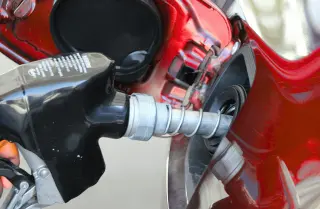
Fuel cards are one of the most popular business tools for managing fuel costs in the UK, but the question many business owners ask is simple: Is a fuel card worth it? Like any financial tool, the value depends on how your business uses it, what kind of vehicles you run, and the scale of your operations.
This guide explores the pros and cons of fuel cards in depth.
You will learn how they work, the tangible savings they offer, the administrative benefits, and the possible drawbacks.
By the end, you will be able to decide whether a fuel card is the right choice for your business.
Who are we? We’re Right Fuel Card, trusted by over 25,000 UK businesses from sole traders to nationwide fleets. Our fuel and EV charge cards cut costs, streamline admin, and enhance security. Whatever the size of your business or how many vehicles you manage, let’s take a look at why fuel cards are the right choice.
This guide was last updated in September 2025.
Understanding what a fuel card offers
A fuel card is a payment card issued to a business for refuelling or EV charging. Instead of drivers paying cash or using personal credit cards and submitting receipts, they use the company-issued fuel card at participating forecourts.
Transactions are recorded centrally and invoiced to the business, usually weekly or fortnightly. The result is one HMRC-approved invoice instead of piles of receipts, alongside a clear digital record of spending.
Fuel cards can also provide fixed weekly prices, discounts compared to pump prices, and additional control features like spend limits, restrictions on fuel type, and real-time reporting.
Fuel card benefits
Fuel cards simplify fleet management, reduce expenses, and provide greater control compared to managing petty cash, credit cards, and expenses.
Here’s how Right Fuel Card helps your business:
Financial savings
Competitive fuel prices: Fuel cards offer access to savings compared to the standard pump price at fuel stations across the UK, including leading brands such as BP, Shell, Esso and Texaco. Fixed, weekly pricing locks in savings for your business; a large fleet, in particular, can reap significant benefits.
Lower admin costs: Replace messy expense claims and credit card receipts with a single HMRC-approved invoice for all your fuel spend, simplifying VAT processing and reducing paperwork for your teams.
No interest charges: Unlike company credit cards, fuel cards incur zero interest on purchases, resulting in potentially significant savings over time.
Read our guide on fuel cards vs. credit cards for more details.
Enhanced control
Custom purchase limits: With a fuel card, you decide what your drivers can purchase. This can be fuel, or you can specify that a card can be used for additional extras such as car washes, lubricants or AdBlue (surcharges apply). Credit cards, however, don’t have this level of control, and could expose you to bad actors looking to take advantage.
Reduced fuel fraud: As a Right Fuel Card customer, you benefit from our fuel card fraud protection service. Additionally, our online portal tracks every transaction, allowing you to flag suspicious activity and manage cards that you suspect may have been lost or stolen.
Robust security: Each card is tied to a driver or vehicle, with chip-and-PIN or swipe-and-sign technology for maximum safety and peace of mind. Read more about fuel card security.
Less admin
Easier payments, less admin: Say goodbye to chasing receipts and managing expenses or petty cash. With fuel cards, you benefit from one consolidated invoice, paid via Direct Debit, which covers all fuel costs – it couldn’t be easier.
Powerful reporting: Access our 24/7 online portal to manage your fuel cards, retrieve PINs, cancel lost cards, order additional cards and run expense reports to optimise spending. We enable you to monitor fuel transactions for each card, view and print new and historical invoices, and run reports to understand your expenditure better and identify ways to save money.
Nationwide access: Choose from cards covering 98% of UK fuel stations, including supermarkets and EV charging points – our fuel card range lets you choose access to single fuel suppliers and whole fuel networks, as well as a wide range of supermarkets. Use our fuel station site locator to find the nearest station.
Benefits for your employees
Fuel cards make life easier for drivers, eliminating hassle and out-of-pocket expenses while boosting everyone’s efficiency through ease of use.
Hassle-free payments: Drivers present their card at the pump, with costs billed directly to your account and consolidated into a single bill; no cash, credit cards, or receipts are required.
No upfront colleague costs: If your company runs a pay and reclaim scheme, there will always be a gap between your employees paying for fuel out of their pocket and receiving this money back after submitting an expenses claim. Unlike pay-and-reclaim expense schemes, fuel cards eliminate the need for drivers to cover fuel expenses and wait for reimbursement.
Remember, not every colleague may be able to afford the pressure of paying upfront, so fuel cards are a benefit that’s accessible to all colleagues, regardless of their financial situation.
Transparency: Detailed transaction records reduce disputes, as every purchase is tracked and verifiable via our online fuel card management portal. Vehicle information is also captured at the point of sale, ensuring that all data is collected. Since you’re invoiced directly, you can view exactly where a driver stopped for fuel, the amount they paid, and the date. There’s little room for anyone to abuse the expenses system.
Reward points: With many of our fuel cards, drivers can claim reward points for the fuel they purchase. Over time, colleagues can earn points at participating stations to redeem for groceries, fuel, or leisure activities. Examples include Tesco Clubcard, Nectar Points, and Morrisons More. Many of our customers position this as an added benefit for their drivers, boosting morale.
When a fuel card may not be worth it
Fuel cards are not a perfect fit for every business.
Here are situations where the benefit may be less clear:
If you’re a consumer. Firstly, it’s important to understand that fuel cards are not for consumers; they are a product for businesses to save costs and simplify admin.
Very small or infrequent use. If you only refuel occasionally (once a month, for example), the savings may be marginal compared to simply paying at the pump, particularly once you factor in the fuel card subscription costs. The savings benefits of fuel cards really come into their own at scale - as a rule, the larger your business and fuel spend, the more you stand to save.
Limited local coverage. Some rural areas or niche routes may not have forecourts covered by certain networks. Drivers may need to detour, which cancels out price savings. Thankfully, you can check our Fuel Station Site Locator to see which fuel cards are compatible with sites most convenient for you.
Misunderstood fees. Some providers charge for paper invoices, replacement cards, or transactions outside their network. They also may charge ‘network’ or ‘transaction’ fees every time a driver uses their card; these costs are usually hidden at the end of the invoice, so it’s important to check the small print.
Private use complications. If fuel cards are used for both business and personal mileage, tax reporting becomes more complex.
In other words, fuel cards are worth it when they align with your fleet’s refuelling patterns and your business processes. They may not be necessary for low-volume or ad-hoc users.
Comparing costs and savings
To assess whether a fuel card is worth it for you, break it down into two steps:
Calculate direct savings. Estimate weekly or monthly fuel volume and compare the pump price against the fixed weekly price or the discount your card offers. Multiply the difference by your total litres to find the potential cost savings with a fuel card.
Calculate admin savings. Estimate the time your finance team spends handling receipts and processing claims. Multiply that time by the hourly cost of labour. This is the hidden savings that many businesses overlook, but which often outweigh fuel price savings.
For many SMEs, the combined saving runs into hundreds or thousands of pounds per year, even with modest fleet sizes.
Beyond savings: the strategic value
Fuel cards are not only about saving money. They provide strategic insight into your fleet’s behaviour. Transaction reports reveal which vehicles use the most fuel, which routes are costliest, and where drivers are refuelling. This data supports better planning, driver training, and environmental reporting.
For fleets adopting electric vehicles, having fuel and charging data in one place is essential for monitoring the transition and ensuring cost visibility.
Questions to ask before deciding
Before deciding whether a fuel card is worth it for your business, ask:
How many vehicles do we run, and how often do they refuel?
Do we have a mix of petrol, diesel, and EVs?
Do our drivers use predictable routes or travel nationwide?
How much time does our finance team spend processing fuel expenses?
Do we need to improve fraud protection or compliance?
If the answers point to significant volume, high admin effort, or a need for better oversight, a fuel card will almost certainly be worth it.
Our verdict: Is a fuel card worth it?
For most businesses that operate vehicles regularly, yes.
The combination of savings, admin efficiency, and control makes fuel cards a valuable tool.
Even small fleets benefit from VAT simplicity and improved security.
However, it is not an automatic yes.
If you only operate one car and refuel very infrequently, the cost savings may not outweigh the effort of applying.
The key is alignment: a fuel card is worth it when its coverage, pricing model, and features match your fleet’s actual needs.
Ready to try a fuel card? Get started with us
If you believe a fuel card could work for your business, the next step is simple. Map your fleet’s typical routes and fuel types, then compare card options.
Right Fuel Card offers a wide range of branded, multi-network, HGV fuel cards, and EV charge cards so you can find one that suits your business.
You can apply online in just a few minutes. Most applications are approved quickly, with cards delivered within 7–10 working days. Once set up, you will see the convenience and control from your first fill-up.
If you want advice, our team will review your routes, vehicles, and fuel needs, and recommend the most cost-effective card for your business.




